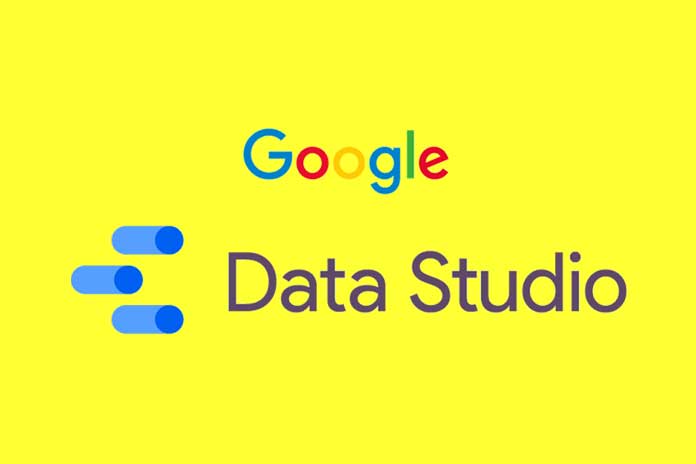Google Data Studio is full of marketing tools and social media analytics; it allows you to create and share customized dashboards and reports: here’s how it works.
Google Data Studio is a popular free program that allows you to quickly and easily create reports or dashboards.
Today it has officially changed its name to Google Looker Studio. Still, its functions remain unchanged: it is a perfect tool for business, given its ability to read, integrate and share information.
With Data Studio, you can connect to other marketing and social media analytics tools: from Google Ads to Google Analytics.
This data is used to create dashboards and reports: two tools with distinct features and functionality. Dashboards condense as much information as possible into a single screen.
They serve to convey an overview and rarely allow explanations to be provided. On the contrary, the reports occupy several pages and let you go into detail on every data.
The first thing to do to create a dashboard or report with Google Data Studio is to hook into a Connector: a platform that becomes the source from which the program will acquire data.
What Is Google Data Studio, And How It Works
Google Data Studio, now known as Looker Studio, is a tool that allows you to convert online data into reports or customized dashboards.
It was launched in March 2016, and at the time, it was part of the Google Analytics 360 suite. A few months later, the Mountain View giant also established a free version of Data Studio, designed specifically for teams and small businesses.
Today Data Studio is part of the Google Marketing Platform, which deals with data analysis, marketing, and online advertising. This platform should be distinct from Google Ads despite the seemingly similar service. These are tools and brands intended for different buyers.
The most distinguishing element of Google Data Studio compared to similar tools is the excellent ease of use. This tool allows you to create effective dashboards in minutes and customize and share them.
To make an accurate comparison: Google Data Studio reports are much easier to create than classic Excel sheets containing data extrapolated thanks to Google Analytics.
Furthermore, Data Studio directly connects with Analytics and, more generally, with the main Google-branded data collection tools. Plus, Data Studio dynamic dashboards update automatically once you’re connected.
But there’s more. Google Data Studio is known for its data blending capabilities, which refer to the ability to mix data from different sources.
Also Read: How To Manage Two Or More Google Accounts On Apple: The Guide
What Are Google Data Studio Reports And Dashboards?
In the previous paragraphs, reference was made to the reports and dashboards of Google Data Studio. Learning how to work with this web and social media analytics tool is undoubtedly helpful to at least explain the fundamental differences between the two terms.
Also, reports and dashboards are conceptually similar, considering that both provide information through tables, graphs, or visual elements.
The substantial difference between reports and dashboards concerns the amount of information available to the user. Dashboards summarize their content within a single screen. On the contrary, the most in-depth reports can also consist of dozens of pages.
On the other hand, the dashboard has the very objective of providing an overview. Through the dashboard, the user must be able to grasp as much information as possible and must be able to relate to each other.
The dashboard is, therefore, a visual representation, which reduces the force of the detail of the unique content. A reverse report is a tool designed to look at data in depth.
It is no coincidence that dashboards are often created as an introduction to reports. In this way, the user immediately has the opportunity to get an idea of the data and topics covered. After that, he can enter into the merits of the analyses carried out and any necessary explanations.
How To Create A Dashboard With Google Data Studio
You must first register your user to create a dashboard and a report with Google Data Studio (today, Google Looker Studio). Then you need to enter specific preferences in terms of receiving emails.
By clicking on the Empty Report item, you access the selection of the so-called Connectors: the data platforms that the tool uses as sources for data collection.
The fastest connectors to choose from are the Google Connectors, such as Google Analytics: the software created directly by the Mountain View giant. Partner Connectors and Open Source Connectors are instead the work of third parties. This means that you may need to apply integrations to import their data.
Dynamic dashboards work thanks to Google’s proprietary and pre-integrated Connectors. These dashboards take real-time marketing or analytics data and update them automatically.
Data Studio also helps the user create an effective dashboard by proposing preset themes and layouts. A way to quickly look at all the data extrapolated from the Connectors.
Alternatively, the user can manually modify all the available contents through a management system not too different from that of presentation programs such as PowerPoint or Keynote.
Just click on Add data to integrate a new Connector. At the same time, click on the Add a graph item to find the most suitable way to represent the single data visually.
From this point of view, Google Data Studio presents the classic spoiled-for-choice. They range from tables to scorecards, time series to bar and pie charts.
And then the geographical charts and those in the style of Google Maps. But also line, area, and scatter graphs. Treemaps, bullets, and pivot tables.
Also Read: What Is Google Data Studio?


